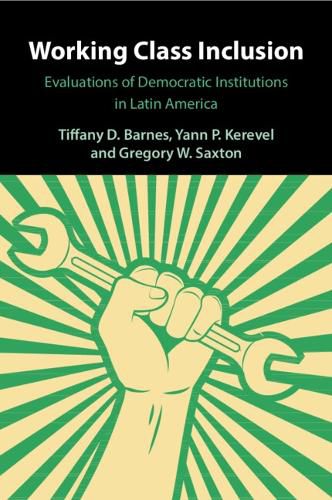Readings Newsletter
Become a Readings Member to make your shopping experience even easier.
Sign in or sign up for free!
You’re not far away from qualifying for FREE standard shipping within Australia
You’ve qualified for FREE standard shipping within Australia
The cart is loading…






Latin American legislators, like legislators worldwide, are drawn from a narrow set of elites who are largely out of touch with average citizens. Despite comprising the vast majority of the labor force, working-class people represent a small slice of the legislature. Working Class Inclusion examines how the near exclusion of working-class citizens from legislatures affects citizens' evaluations of government. Combining surveys from across Latin America with novel data on legislators' class backgrounds and experiments from Argentina and Mexico, the book demonstrates voters want more workers in office, and when combined with policy representation, the presence of working-class legislators improves citizens' evaluations of government. Absent policy representation, however, workers are met with distrust and backlash. Chapters show citizens have many opportunities to learn about the presence, or absence, of workers; and the relationship between working-class representation and evaluations of government is strongest among citizens who are aware of legislators' class status.
$9.00 standard shipping within Australia
FREE standard shipping within Australia for orders over $100.00
Express & International shipping calculated at checkout
Latin American legislators, like legislators worldwide, are drawn from a narrow set of elites who are largely out of touch with average citizens. Despite comprising the vast majority of the labor force, working-class people represent a small slice of the legislature. Working Class Inclusion examines how the near exclusion of working-class citizens from legislatures affects citizens' evaluations of government. Combining surveys from across Latin America with novel data on legislators' class backgrounds and experiments from Argentina and Mexico, the book demonstrates voters want more workers in office, and when combined with policy representation, the presence of working-class legislators improves citizens' evaluations of government. Absent policy representation, however, workers are met with distrust and backlash. Chapters show citizens have many opportunities to learn about the presence, or absence, of workers; and the relationship between working-class representation and evaluations of government is strongest among citizens who are aware of legislators' class status.